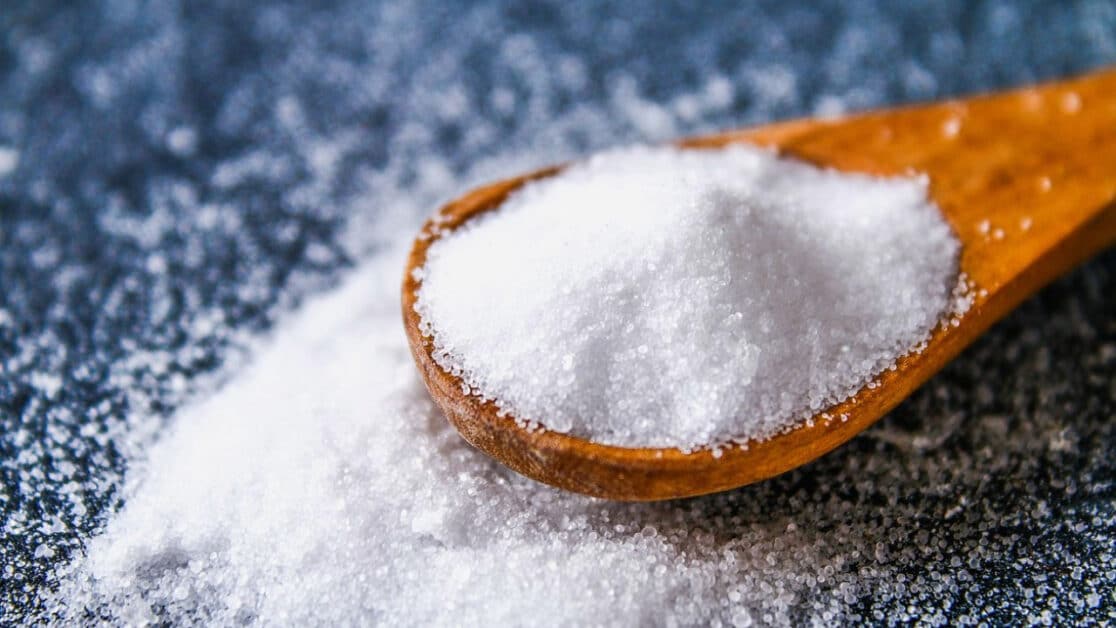O sódio é um mineral essencial para o corpo humano, desempenhando vários papéis cruciais na manutenção da saúde.
Embora seja vital para o funcionamento do organismo, o consumo excessivo de sódio está associado a vários riscos à saúde, incluindo hipertensão e doenças cardiovasculares. Neste artigo, exploraremos os benefícios do sódio, os riscos associados ao seu consumo excessivo e como manter um equilíbrio saudável.
A Importância do Sódio no Corpo Humano
O sódio é um eletrólito que ajuda a regular o equilíbrio hídrico do corpo, manter a função muscular e nervosa e controlar a pressão arterial. Ele é encontrado naturalmente em muitos alimentos e também é adicionado a alimentos processados para realçar o sabor e preservar a frescura.
1. Regulação do Equilíbrio Hídrico
O sódio desempenha um papel fundamental na manutenção do equilíbrio de fluidos dentro e fora das células. Juntamente com o potássio, ele ajuda a controlar a quantidade de água no corpo, garantindo que os fluidos corporais sejam distribuídos adequadamente entre os compartimentos intracelular e extracelular.
2. Função Muscular e Nervosa
O sódio é crucial para a função adequada dos músculos e nervos. Ele facilita a transmissão de impulsos nervosos e é necessário para a contração muscular. Sem sódio suficiente, a função muscular e nervosa pode ser comprometida, levando a fraqueza muscular e espasmos.
3. Controle da Pressão Arterial
O sódio é essencial para a manutenção da pressão arterial. Ele ajuda a regular o volume de sangue e a pressão nos vasos sanguíneos. No entanto, o equilíbrio é delicado, e o consumo excessivo de sódio pode levar ao aumento da pressão arterial, o que é um fator de risco significativo para doenças cardiovasculares.
Benefícios do Sódio para a Saúde
1. Hidratação Adequada
O sódio é fundamental para a hidratação, especialmente durante a atividade física intensa. Ele ajuda a manter o equilíbrio de fluidos no corpo, prevenindo a desidratação e garantindo que os músculos funcionem corretamente.
2. Prevenção de Cãibras Musculares
A ingestão adequada de sódio pode ajudar a prevenir cãibras musculares, que são comuns durante o exercício ou em climas quentes. O sódio ajuda a manter o equilíbrio eletrolítico, que é essencial para a função muscular adequada.
3. Função Nervosa Ideal
O sódio é necessário para a transmissão de impulsos nervosos, que são essenciais para a comunicação entre o cérebro e o resto do corpo. Sem sódio suficiente, a função nervosa pode ser prejudicada, levando a problemas neurológicos.
Riscos do Consumo Excessivo de Sódio
Embora o sódio seja essencial para a saúde, o consumo excessivo está associado a vários riscos à saúde. A maioria das pessoas consome mais sódio do que o recomendado, principalmente devido ao consumo de alimentos processados e refeições prontas.
1. Hipertensão Arterial
O consumo excessivo de sódio é uma das principais causas de hipertensão arterial. O sódio aumenta a retenção de água no corpo, o que eleva o volume de sangue e, consequentemente, a pressão arterial. A hipertensão é um fator de risco significativo para doenças cardíacas e acidentes vasculares cerebrais.
2. Doenças Cardiovasculares
O consumo elevado de sódio está associado a um maior risco de doenças cardiovasculares, incluindo ataques cardíacos e insuficiência cardíaca. Reduzir a ingestão de sódio pode ajudar a diminuir esse risco e melhorar a saúde cardiovascular.
3. Problemas Renais
O excesso de sódio pode sobrecarregar os rins, que são responsáveis por filtrar o excesso de sódio do sangue. Isso pode levar a problemas renais, incluindo a formação de cálculos renais e a diminuição da função renal.
Como Manter um Equilíbrio Saudável de Sódio
Para manter um equilíbrio saudável de sódio, é importante seguir algumas diretrizes dietéticas e fazer escolhas alimentares conscientes.
1. Conheça suas Necessidades Diárias
A Organização Mundial da Saúde (OMS) recomenda que os adultos consumam menos de 2.000 mg de sódio por dia, o que equivale a aproximadamente 5 gramas de sal. No entanto, muitas pessoas consomem muito mais do que isso, principalmente devido ao consumo de alimentos processados.
2. Escolha Alimentos com Baixo Teor de Sódio
Optar por alimentos frescos e não processados é uma maneira eficaz de reduzir a ingestão de sódio. Frutas, vegetais, carnes magras e grãos integrais são opções saudáveis que geralmente contêm menos sódio.
3. Leia os Rótulos dos Alimentos
Ao comprar alimentos embalados, é importante ler os rótulos nutricionais para verificar o teor de sódio. Escolha produtos com baixo teor de sódio e evite alimentos com alto teor de sal, como sopas enlatadas, molhos prontos e embutidos.
4. Cozinhe em Casa
Cozinhar em casa permite controlar a quantidade de sal adicionado aos alimentos. Use ervas e especiarias para realçar o sabor das refeições em vez de sal. Isso não só reduz a ingestão de sódio, mas também melhora a qualidade nutricional das refeições.
Considerações Finais
O sódio é um mineral essencial que desempenha papéis vitais na saúde humana, incluindo a regulação do equilíbrio hídrico, a função muscular e nervosa e o controle da pressão arterial. No entanto, o consumo excessivo de sódio está associado a vários riscos à saúde, como hipertensão, doenças cardiovasculares e problemas renais. Manter um equilíbrio saudável de sódio através de escolhas alimentares conscientes e hábitos dietéticos saudáveis é crucial para promover a saúde e o bem-estar geral.
Garantir uma ingestão adequada de sódio, evitando o consumo excessivo, é um passo importante para manter um corpo saudável e reduzir o risco de doenças crônicas. Ao seguir as diretrizes recomendadas e fazer escolhas alimentares inteligentes, você pode desfrutar dos benefícios do sódio sem comprometer sua saúde.
